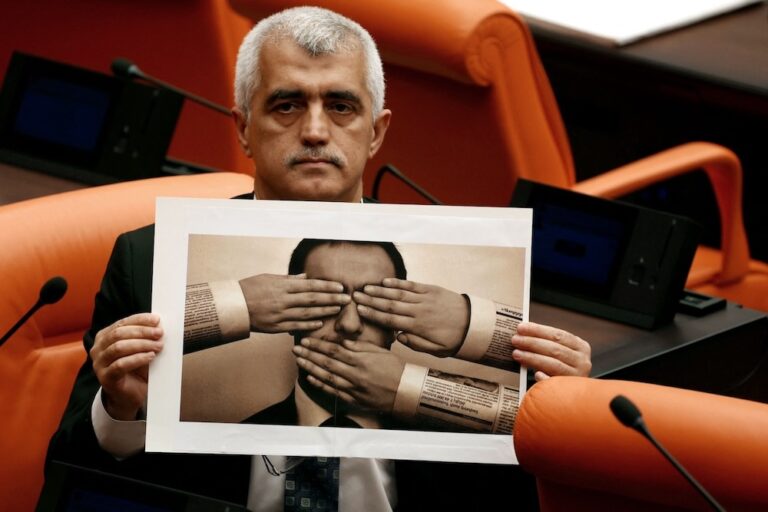RSF urges the government to amend Law 5651 governing offences committed online in order to reconcile it with the need to respect free expression.
(RSF/IFEX) – The social networking website MySpace has been blocked in Turkey since 19 September 2009 over a copyright dispute. Anyone trying to visit the site sees a message saying access has been blocked by order 2009/45, issued on 26 June by the prosecutor of the Istanbul district of Beyoglu. Two other sites, Lastfm.com.tr and Akilli.tv, have been blocked by the same order.
“Copyright is often used as grounds for censoring the Internet,” Reporters Without Borders said. “But blocking websites is a disproportionate sanction that violates online free expression. Withdrawing the content that violates the copyright would suffice. Censorship is a common reflex in Turkey and we condemn it strongly.”
Yaman Akdeniz, a law professor at the University of Leeds (UK), told Reporters Without Borders: “Measures are taken against the Internet as if this was still the era of the dinosaurs.”
Disconnecting access to a website on the orders of a prosecutor rather than a judge is a violation of the European Convention on Human Rights, of which Turkey is a signatory.
Many European countries, including France, are looking at the possibility of suspending the Internet connections of those who illegally download content protected by copyright. While the desire to protect literary and artistic creation is understandable, Reporters Without Borders believes such measures would constitute an unacceptable restriction of online freedom of expression.
The press freedom organisation urges the Turkish government to amend law 5651 governing offenses committed online, in order to reconcile it with the need to respect free expression in accordance with the European Convention on Human Rights.
The video-sharing website YouTube has been inaccessible since May 2008 in Turkey, which is ranked 102nd out of 173 countries in the Reporters Without Borders press freedom index.


